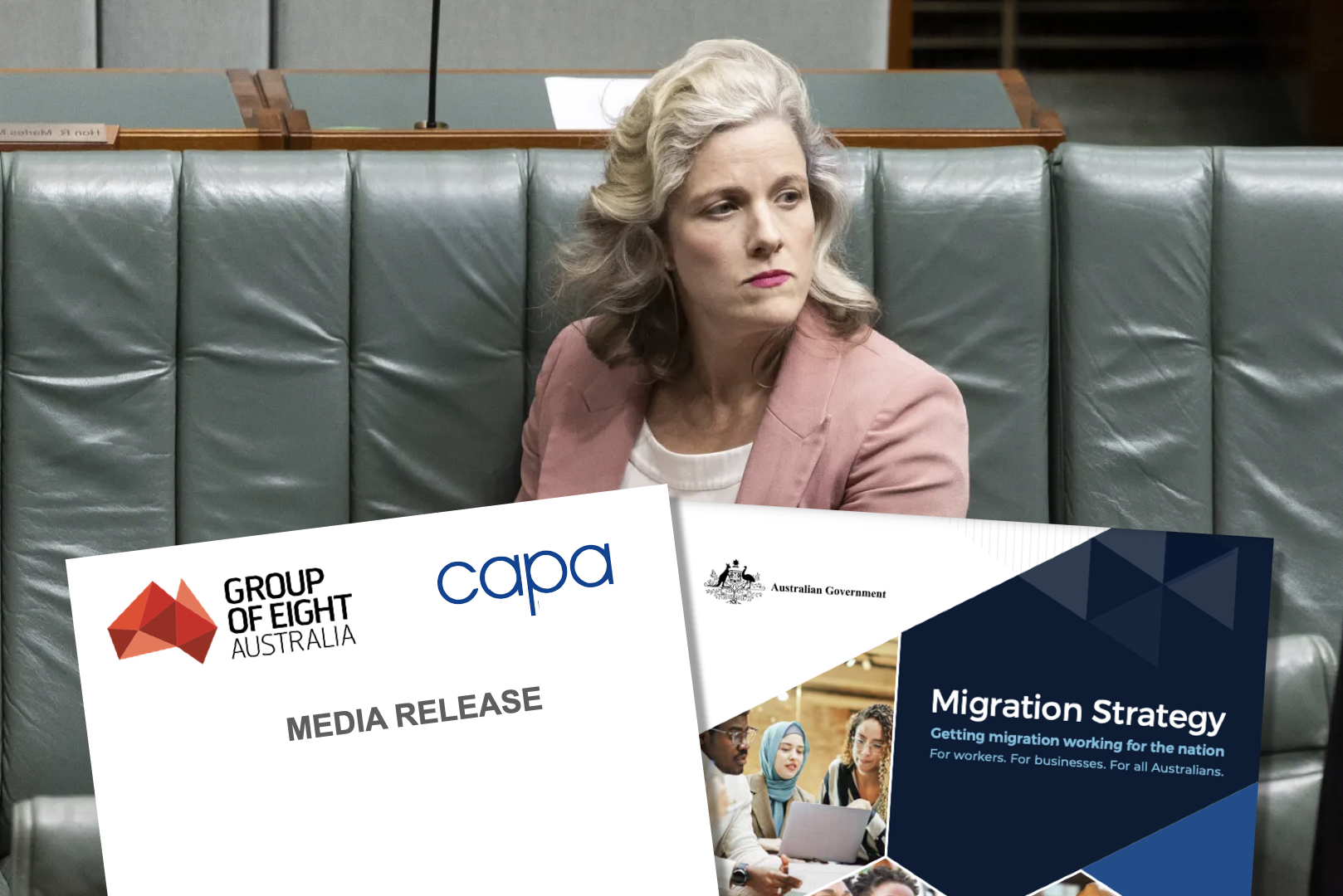The implementation of the new Albanese government migration policy, which aims to reduce migration from a record of 510,000 between June 2022 and June 2023 to a target of 250,000 a year until June 2025 has caused international student visas to be cancelled across the country.
The plan includes increasing English language requirements, creating a new “genuine student test”, a crackdown on visa hopping, and a complete overhaul of the Temporary Graduate Visa (TGV).
Universities across Australia, in order to comply with the new regulations, have sent messages to students that either directly cancel enrollments or ask students to withdraw or defer their enrollment.
At the time of publication the University of Western Sydney, Macquarie University, and the University of Wollongong have all sent letters or emails to students cancelling their enrolment.
A University of Sydney spokesperson told Honi Soit that, “at this stage we haven’t cancelled any enrolments or advised any students to withdraw their applications, however we are seeing significantly more students still waiting on their visa outcomes than in previous years.”
The University also urged students who think the new laws may impact their ability to start Semester 1 this year to contact the university in order to discuss their options which may include suspending or deferring their enrollment if their visa is not approved by the end of week 2.
If universities don’t tighten their admissions process they risk the Department of Home Affairs increasing their risk rating which impacts how fast student visa applications are processed. Universities with a high risk rating (2 or 3 as opposed to 1) have to go through a much more stringent approval process for every one of their students.
The leaders of 16 universities have written to the Home Affairs Minister Clare O’Neil arguing the pace of the changes pose an “alarming” threat to the tertiary education sector. They are seeking the rapid intervention of the federal government to relax the implementation of the regulation so they are not forced to turn thousands of students away.
In particular, universities are concerned about the new age cap on the TGV which reduces the maximum age you can gain a visa from 50 to 35.
The Group of Eight (Go8), which represents the eight most prestigious universities in Australia and the Council for Australian Postgraduate Associations (CAPA) released a joint statement calling on the government to reverse the policy citing a potential decline in researchers choosing Australia for postgraduate study.
Vicki Thomson, Go8 Chief Executive expanded on this. “Admission into PhD programmes requires extensive academic and often industry experience. Given that completing a PhD in Australia takes four years or longer depending on the research project, this change means many international graduates will not qualify under the new TGV age limit”
Weihong Liang, President of the Sydney University Postgraduate Representative Association (SUPRA), agreed, telling Honi that many students had approached SUPRA concerned about their visa application.
Some, Liang said, had already left Australia for the United States or Europe where the visa conditions were less strict.
Grace Street, SRC Education Officer, told Honi that the rescinding of offers based on potential future visa status “is wholly unethical and unfair.”
She added that international students already faced extreme cost of living pressures and are struggling to pay for housing on top of “extortionate” fees. “We need to be doing more to support them,” Street argued.
A report, commissioned by the Vice Chancellor’s office late last year and published in January, concluded that a large enough number of USyd’s international postgraduate students are over the age of 30 to severely impact the university’s research.
The report is not publicly available due to the risk a low sample size could make the data of individual students easily identifiable.
O’Neil responded to the calls from universities by maintaining the government’s stance, “migration is too high. Our goal is very clear. We are returning migration to pre-COVID levels, and applying proper integrity to student visa applications is critical to doing that.”





